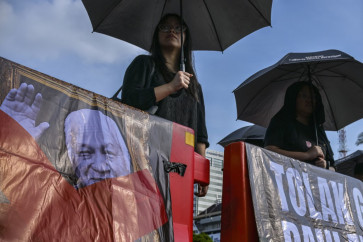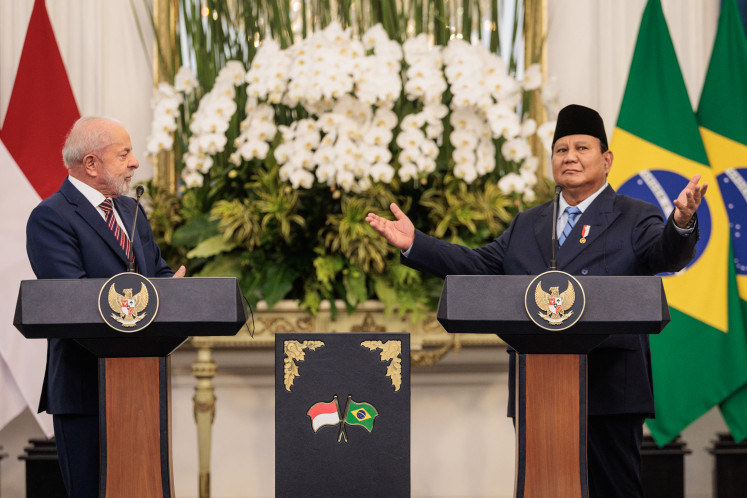Popular Reads
Top Results
Can't find what you're looking for?
View all search resultsPopular Reads
Top Results
Can't find what you're looking for?
View all search resultsRevised law aims for food sufficiency
Lawmakers on Thursday approved a revision to the 1996 Food Law, paving the way for the establishment of a new agency whose main mission will be to ensure food security
Change text size
Gift Premium Articles
to Anyone
L
awmakers on Thursday approved a revision to the 1996 Food Law, paving the way for the establishment of a new agency whose main mission will be to ensure food security.
The new agency, expected to be established within three years, will have policy-making authority on food security issues, such as fine-tuning the amount of exports and imports of crucial food commodities.
To achieve its mission of ensuring food sufficiency in the country, the agency will possess the authority to instruct relevant ministries — such as the Agriculture Ministry, Maritime and Fisheries Ministry and Trade Ministry — to ensure that its goals are fulfilled. It will also be directly answerable to the president.
“With the establishment of this agency, the Agriculture Ministry will only deal with technical issues, such as how to expand the size of our farmland and how to increase productivity on our farms,” Herman Khaeron, the deputy chairman of House Commission IV overseeing agriculture and fisheries, told reporters after the law was passed in a plenary meeting.
The new agency, he added, would be responsible for more strategic issues, such as diversifying food crops, managing food stocks and handling the flow of exports and imports of food commodities.
“It depends on the president as to whether this agency will be established as a ministerial or non-ministerial department, although we personally would prefer [it to be a] ministerial department,” added Herman, a politician from President Susilo Bambang Yudhoyono’s Democratic Party.
The development of the country’s agriculture and food sector has been hampered by the fact that a number of ministries and government institutions have often been at odds over policy issues relating to food and agriculture, analysts have said.
Critics, however, are concerned about the establishment of the new agency, arguing that it may only add another layer of bureaucracy, making the decision-making on issues relating to food commodities even more ineffective.
“To ensure that coordination between the relevant ministries is effective, the agency must be equipped with strong authority,” said Tejo Wahyu Jatmiko, the national coordinator of the Alliance for Prosperous Villages (ADS), an alliance of 15 NGOs that focuses on food and rural issues.
The passing of the revised law is also seen as Indonesian defiance toward recommendations proposed by international stakeholders, particularly the Organization for Economic Cooperation and Development (OECD).
In its report released last week, the Paris-based group of rich economies criticized the government’s focus on self-sufficiency including imposing import barriers and subsidizing farmers.
“The OECD’s view is incorrect,” House Commission IV chairman Romahurmuziy said in a speech to lawmakers prior to the passing of the law.
“The formulation of this bill shows that we are still committed to food sovereignty, independence and resilience. We are an independent country that can determine our own policies without intervention from other countries or organizations.” (sat)
Key articles:
Article 34: Exporting of basic food commodities can only be carried out if the needs for domestic consumption and national food reserves have been fulfilled
Article 36: Importing of basic food commodities can only be carried out if the needs for domestic consumption and national food reserves have not been fulfilled or if domestic food production is insufficient and (crops) cannot be produced domestically
Article 126 : To achieve national food sovereignty, food independence and food resilience, a government agency on food issues, under direct command of and responsible to the president, must be formed










